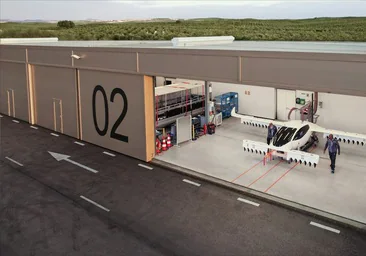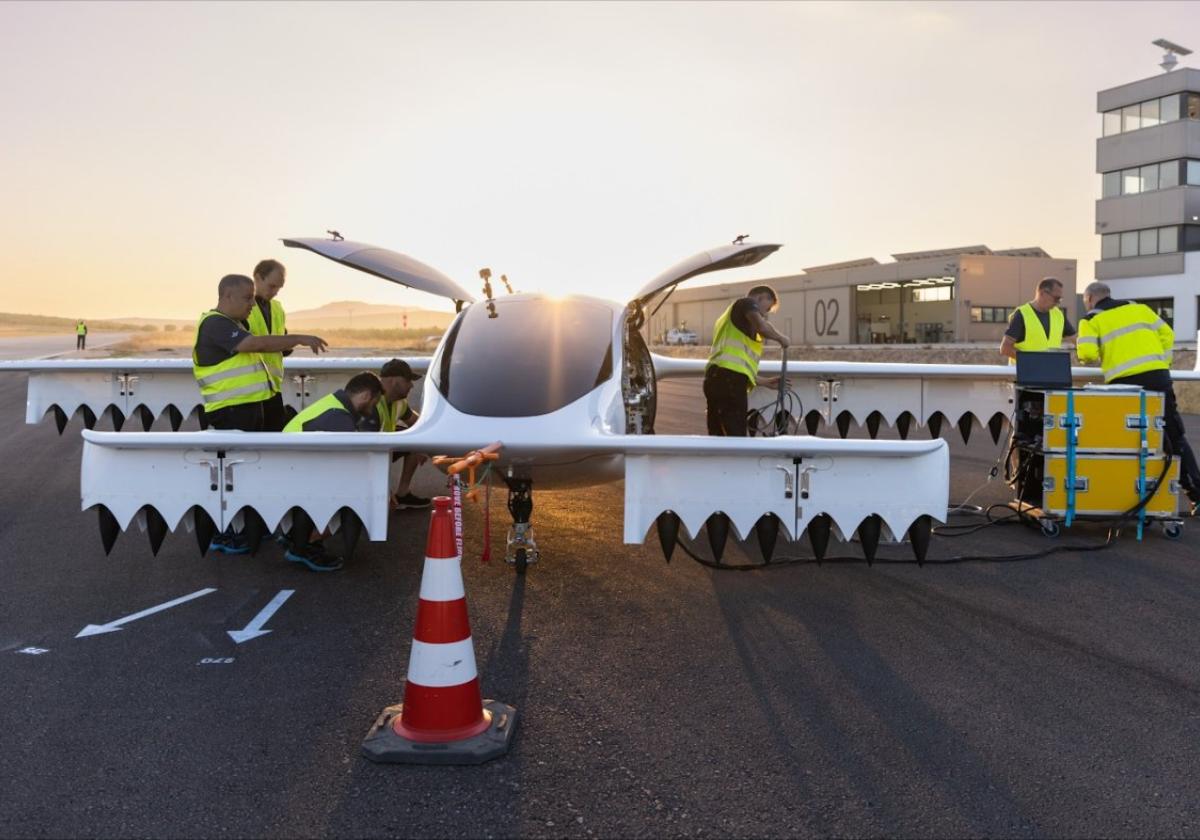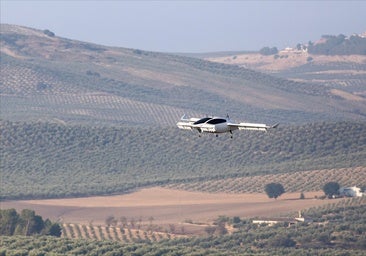From Malaga Airport to Marbella by drone: how long will the journey take and what will it cost?
German company Lilium is working with Spain's air traffic control service Enaire and local businesses to start flying commercial passengers as soon as 2026
Ever since SUR started reporting on the leading role Malaga Airport and its control tower are playing in the development of future Vtol (vertical take-off and landing) drones for commercial passenger transport in Spain, a question has hung in the air: How much is this going to cost? And now there is an estimate.
German company Lilium, which is working with air traffic control company Enaire and local businesses to bring this new technology to the Costa del Sol, estimates an approximate cost of two euros per passenger per kilometre of flight. Given the distance from the city's airport to Marbella is about 50 kilometres (according to Google Maps), the journey would cost 100 euros.
In any case, it will be the operators who run the routes who will finally determine their operating costs and profits. On this point, it is worth remembering that Helity, the helicopter company that connects Malaga, Algeciras and Ceuta, has a pre-agreement with Lilium to develop Vtol connections in Andalucía, and has shown its interest in initially buying five of these aircraft for trips in the region.
Lilium calculates a cost of two euros per kilometre travelled, with an operating range of 175 km
"The Lilium aircraft will achieve an industry-leading cost, our vision is to democratise electric aviation," a company spokesperson told SUR. The aircraft, with a planned capacity for six passengers, is still in the development phase. "We are seeing very good progress. We started production of our aircraft at the end of last year in our Munich facility, and the second fuselage is being prepared for final assembly.
First operations: 2026
At the moment, the aeronautics firm is conducting flight tests with two technology demonstrators in Villacarrillo (Jaén), "but our focus now is on achieving the first piloted flight by the end of the year". But the timeline is ambitious: "We are planning to deliver our first aircraft to customers in 2026, and we will scale up from there".
The biggest advantage of this new form of mobility will be the substantial reduction in journey times, and with many guarantees of punctuality and reliability. The Lilium aircraft, which will be subject to commercial aviation safety standards, reaches a cruising speed of up to 250 kilometres per hour, with a maximum range of 250 kilometres (operating range of 175 km). With this data, the journey between Malaga Airport and Marbella will take just 15-20 minutes; and about 35-40 minutes to Granada.
For the rest, the Lilium aircraft, like the rest of the models that manufacturers are designing around the world, will be fully electric aircraft and will always take off and land vertically (that is precisely what Vtol means, which is the technical name for these aircraft), so they will be accessible in large cities. They will have the same safety standards as commercial aviation, although their seating capacity will be limited to between five and ten seats.
Although the existing heliports can be used, the idea is to build landing strips in strategic areas, such as the airport, the Port of Malaga (due to its proximity to the city centre and to other important resources) and at a strategic point in Marbella.




-U101072592324x1-1200x840@Diario%20Sur.jpg)